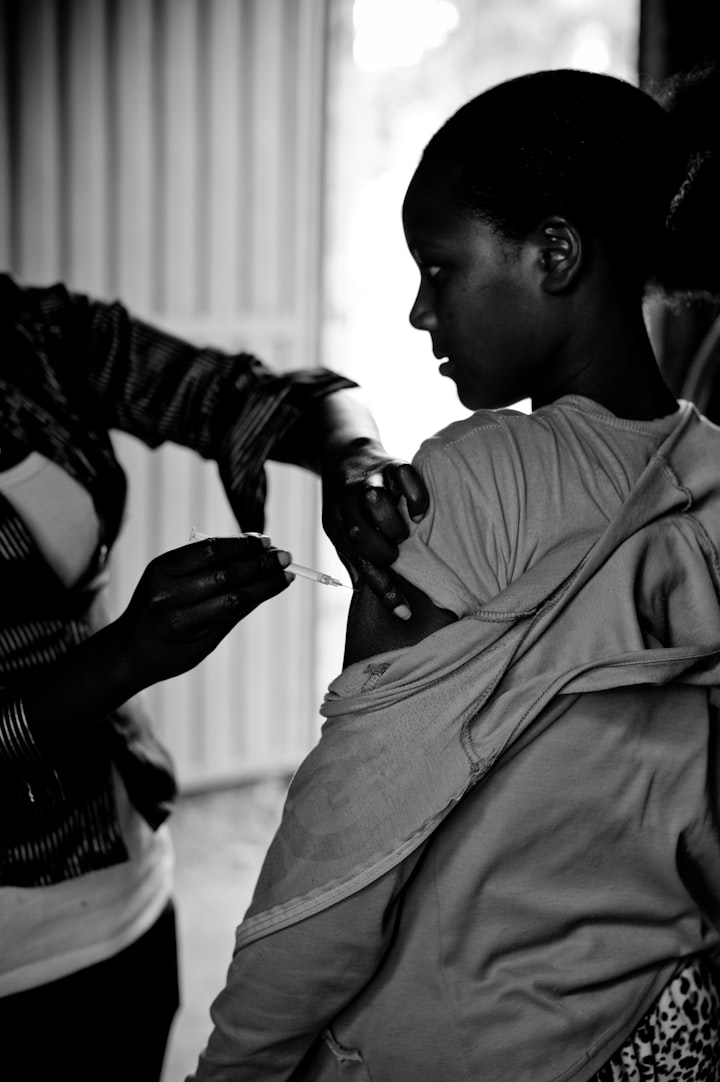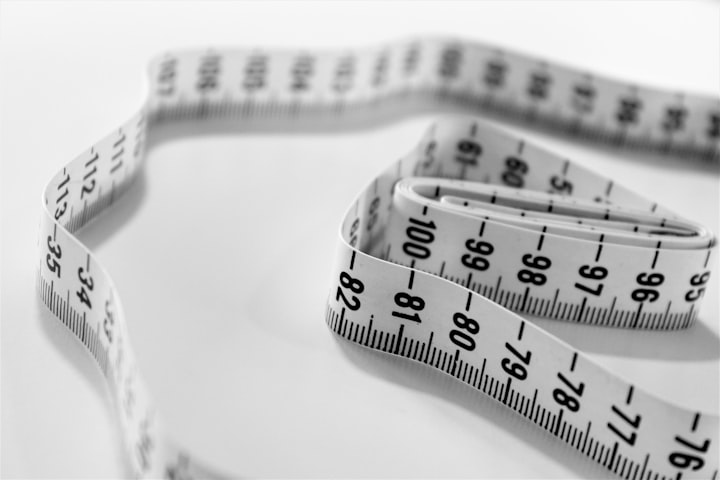Privilege and the COVID Vaccine
How Social Class, Location, and Employment Factor into Access

Yesterday, I got a call telling me that I might be able to get the COVID vaccine sooner because a business I am loosely affiliated with might have extra doses.
That's a lot of mights, but it pointed out to me just how important privilege is in accessing the vaccine early. I am privileged enough to be affiliated with that company, have a work schedule that allows me to be available whenever someone offers me a vaccine appointment and have the transportation to go wherever I need to in hopes of getting the shot. Hell, even living in Pennsylvania is a privilege when it comes to the vaccine.
Let's talk about the role that privilege plays in getting the vaccine.
It's about where you live.
Because there is no federal plan for distributing the COVID-19 vaccine, individual states are allowed to set the priorities for distribution. Some like Florida have been accused of sending more vaccines to wealthy areas. Others, like Massachusetts, have set stricter limitations on who can get the vaccine first.
Here in Pennsylvania, group 1A, the first eligible for the vaccine includes nursing home residents regardless of age, people over 75, first responders and health care workers, some other essential employees like grocery store workers, and people who meet a very specific list of co-morbidities.
The problem with that is it covers a huge segment of the population.
No, it's not that Pennsylvanians are more inclined to be elderly or ill or essential workers. It's that one of the co-morbidities that qualifies you for the vaccine is obesity.
We could argue for days about whether body mass index is an accurate representation of obesity (hint: it's not!) and whether obesity is actually a co-morbidity for negative outcomes with COVID-19.
The second part of that argument gets ugly because any of use who are obese know that we are generally not given the same level of healthcare as people who are thinner. Thus, people who are obese have to be more sick before they are actually given treatment, leading directly to worse outcomes.
What we can't argue is that using that definition of obesity includes a lot of people. According to Healthline, the average American woman weighs about 170 pounds and wears a size 16 or 18. I am remarkably average which makes me qualified for Group 1A based on obesity.
According to the CDC, more than 40% of Americans are obese. Extrapolating, that means up to 40% of Pennsylvanians are eligible for group 1A based on that alone.
Clearly, the state did not have vaccines available immediately for 40% of its 12.7 million residents. That would require more than 5 million vaccines.
Still, all of those people are technically eligible to get the vaccine right now. They likely wouldn't be in other states.
It's about where you live within a state.
Pennsylvania is a bit weird in that the city of Philadelphia is not vaccinating its residents through the state department of health, but is handling it themselves.
That's already caused problems because the city chose a startup run by a 22-year-old to coordinate the distribution. He wasn't qualified.
But equally importantly, people in the suburbs are taking advantage of their proximity to the city and going there to get the vaccine. On my local area Facebook page, there is regularly discussion of using a Philadelphia zip code when looking for vaccine appointment locations.
People can do this because none of the vaccine providers require you to prove that you are actually eligible for the vaccine. No need to prove you live or work in the city or that you have a legitimate reason to be part of the first group. You simply prefill out a form that says you are eligible and then make your appointment.
I'm sure there could be ramifications for lying on the eligibility form, but I haven't seen any.
And that issue is not unique to Philly. A story in Chicago Tribune said suburbanites there are traveling to the South Chicago and West Chicago to get vaccine appointments, possibly taking vaccine opportunities away from the residents of that area who are primarily working class, Black people and other people of color.
Residents in other parts of the state have a harder time getting access to vaccine appointments.
It's about when you can get the shot.
In Montgomery County where I live, if you get on the county's waiting list for Group 1A, they are estimating you have a 6 to 12 week wait to get an appointment. So the other way to get an appointment is to regularly check the commercial sites offering the vaccine -- RiteAid and a few other pharmacies and some medical providers.
To register to get the vaccine at these companies, you fill out a form online verifying that you are eligible to receive the vaccine in the first wave and then search their locations for available appointments. Most are only making appointments about two weeks in advance, so most of the time you fill out the form only to be told there are no appointments available at the locations in your search.
Just looking for the appointments on average takes me 10 minutes a day. I haven't found one yet.
And I can do that because I have the privilege of having the time to devote to it on a daily basis and home internet access. Folks without those things have an even harder time looking for a vaccine appointment.
Additionally, because of the work I do, I have a very flexible schedule. I manage a self storage facility. If I were able to find an appointment, no matter what time of day it was, I could take it. I have someone to cover for me at work.
For people who are less privileged, or maybe even equally privileged but working a more strict attendance-related job, taking time off to get the vaccine, even if they can find an appointment, may mean missing work and risking all the negative consequences that come with that.
I know more than a few people who simply cannot just call in to work because they finally got a vaccine appointment. Curiously, many of them are essential workers.
It's about where you can get the shot.
One person I know who has gotten the first dose of the vaccine drove an hour and a half to the place where they got their appointment.
Discounting the issues with this raised earlier, like were they taking the vaccine away from someone who lived more local to appointment, there is a huge privilege in being able to drive that far to get a shot.
First, they had the ability to make a three hour round trip drive during the work week without it impacting their employment.
Second, they had a vehicle that could make the trip. I know a lot of people whose vehicles are enough to get them back and forth to work, but certainly aren't road worthy enough for a multi-hour trip.
Third, they had a vehicle. A large number of people who live in cities, especially if the city has good mass transit, don't have vehicles. And the bius likely doesn't go to whatever outlying community might have vaccine appointments.
My in-laws, who are both older and have survived open heart surgery, don't drive anymore. There is absolutely no way they could travel an hour and a half each way to get a vaccine and yet they likely need it more than the person I know who was able to travel.
People with many types of jobs couldn't do this. Parents with young children likely couldn't do this. There is extreme privilege in being able to travel to get the vaccine.
It's about who you know.
The offer that I might be able to get the vaccine through the company I work for is another massive privilege.
Chances are there are other people in our community who need the vaccine just as much as I do. Technically, my multiple sclerosis isn't considered a co-morbidity. I only qualify for the first group because I'm an average American woman and have a BMI over 30.
But because of who I know, I may be able to get my first dose of the vaccine far sooner than someone with similar or even greater co-morbidities.
Don't get me wrong, I'm not going to turn it down because of my privilege, but I am acknowledging it.
Vaccine distribution was seriously screwed up.
We all know by now that the previous federal administration had no plan for vaccine distribution. And it seems like the new administration's plan is to just get as many vaccines available as possible.
This is one of the many ways that our federal government fails American citizens.
Because we have 50 individual fifedoms (states), we have 50 different sets of rules. This is one of the may times that we needed a coordinated federal effort. There should have been federal guidelines for who got the vaccine first and it damn sure should not have been related to income, social class or where you live.
The distribution of the vaccine should have been based on health needs AND employment when your employment requires you to be at greater risk. Medical professionals, emergency personnel and teachers as well as grocery store clerks should have been in the first wave of those getting vaccines.
Even though it mean I would have to wait longer, obesity alone should not have been enough to make my vaccination a priority.
About the Creator
LUCINDA M GUNNIN
Lucinda Gunnin is a commercial property manager and author in suburban Philadelphia. She is an avid gamer, sushi addict, and animal advocate. She writes about storage and moving, gaming, gluten-free eating and more. Twitter: @LucindaGunnin






Comments
There are no comments for this story
Be the first to respond and start the conversation.